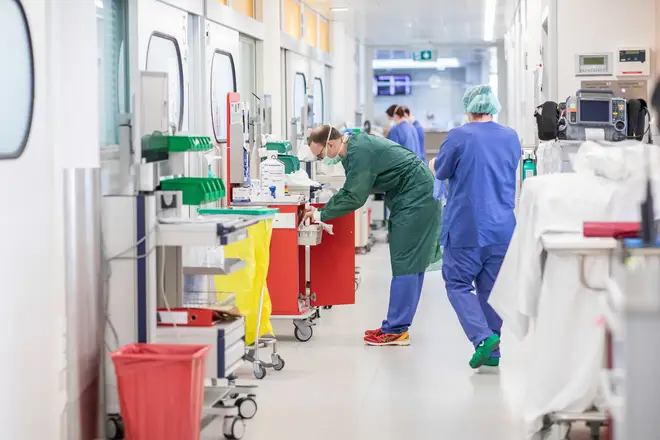
Shelagh Fogarty 1pm - 4pm
7 April 2020, 06:51 | Updated: 7 June 2023, 08:56

Doctor explains what will happen in Intensive Care with Boris Johnson
An Intensive Care consultant told LBC what will care Boris Johnson will be receiving in hospital as his conditions worsened.
The Prime Minister was moved to the ICU unit yesterday afternoon as his symptoms got worse as he battles coronavirus at St Thomas' Hospital.
He is understood that he needed to have oxygen, but remains conscious and is yet to be put on a ventilator.
Dr Joe Cosgrove, a consultant in Anaesthesia and Intensive Care Medicine, explained to Nick Ferrari the care that he would be receiving.
READ MORE: Boris Johnson moved to Intensive Care ward

He said: "On an Intensive Care Unit when people are first admitted there with the beginnings of respiratory failure, the patient would receive oxygen via a facemask or two prongs within the nostrils.
"They would also have a series of wires sticking on to their chest to monitor the heart and a peg on their finger which monitors their oxygen levels.
"They would usually, as well as an intravenous cannula, they would have a cannula inserted into an artery that allows beat-to-beat measuring of blood pressure, but also allows direct blood sampling from the artery, not only basic blood tests like salt levels in the blood, but also oxygen and carbon dioxide levels in the blood."
Asked when Mr Johnson would be put on a ventilator, Dr Cosgrove said: "You will assess the clinical situation itself, you would look at the patient's respiratory rate and oxygen and carbon dioxide levels from the blood test.
"You would also ask the patient, if they have the capacity, or speak to a loved one and try to build up a picture of how they feel about everything.
"Based on that information, you would put together a reasoned package and implement treatments, which you would be reviewing at the very least hour-to-hour.
"The gravest concern is to work out what's happening to the oxygen and carbon dioxide levels. This can help to tell whether a patient's breathing is slowing down or is breathing too quickly."
Dr Ron Daniels, an NHS Intensive Care Consultant told LBC that a decision on a patient would be made within 24 hours whether to either put him on a ventilator or to return him to a ward as his condition had improved.
Watch his full interview at the top of the page.